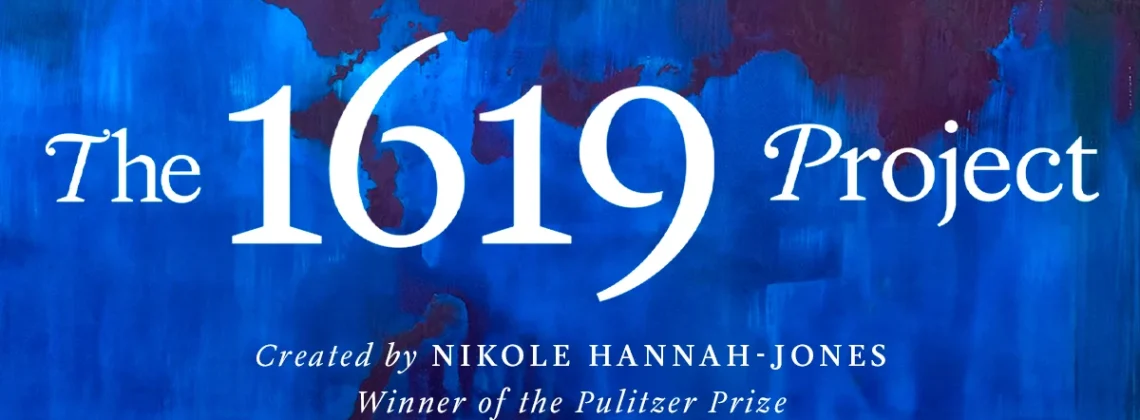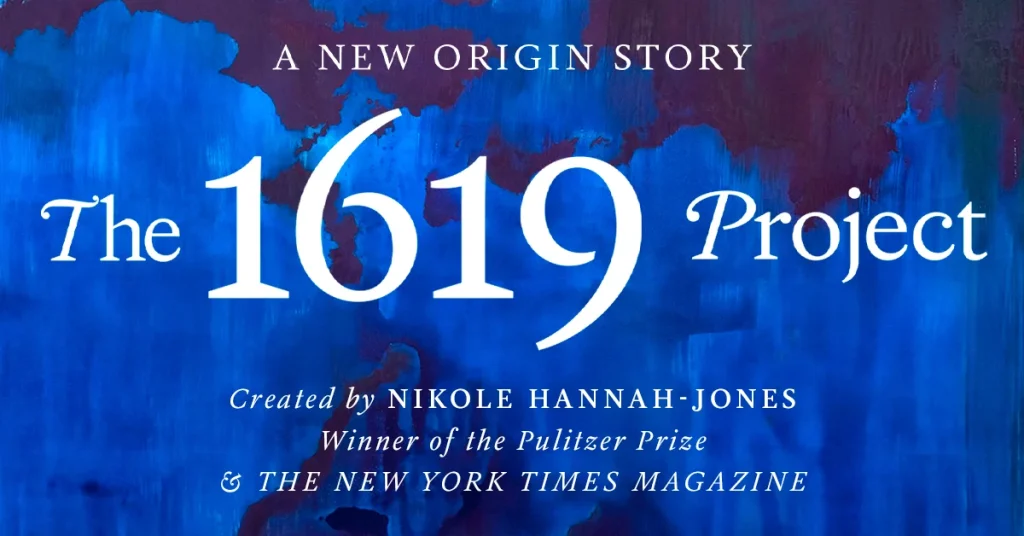

It looks like my feature we published on Friday at Current received some attention on Twitter. I’m glad people are reading it and, for the most part, taking it seriously.
For the record, here is everything I have written at Current about the 1619 Project. I have defended it when I thought it was appropriate and criticized (or platformed critics) when I thought it was appropriate. I think it is also fair to say that my views have developed as I have read the criticisms and defenses of the project and watched it get packaged for K-12 education.
Here are some of the common criticisms of “Kid Gloves”:
Nikole Hannah Jones:
I am flattered that the piece got the attention of the author of the 1619 Project, Nikole Hannah Jones:
Jones tweeted several more times, noting the academic historians who criticized the critics of the 1619 Project. I encourage you to check out those tweets.
Jones is absolutely correct when she says that critique and review are normative to the field. As for me, I think the 1619 Project has a lot of problems and I am largely sympathetic to some of the critiques published at the World Socialist Web Site and republished in The New York Times’ 1619 Project and the Racialist Falsification of History. I would gladly use the 1619 Project in my classroom to get students to see how the past can be marshalled for political ends (much like I do for conservative historians). But I would not use it to teach slavery, African American history, the American Revolution, or colonial America. There is A LOT of stuff published that does a much better job.
I also realize that other members of the historical guild might read the evidence differently. But this was not the point of my post. I asked if someone who was vocally supportive of the critiques published in The New York Times’ 1619 Project and the Racialist Falsification of History could land a job in a history department at an American university. In other words, could someone who thinks about the past in the same way as Gordon Wood, Victoria Bynum, James McPherson, James Oakes, Richard Cawardine, Clayborne Carson, Barbara Fields, Allen Guelzo and others land an academic position today? My argument was about diversity in the academy, not whether historians can differ about the 1619 Project.
Which leads to the second critique of my piece:
“A question about the 1619 Project would never come-up in a job interview.”
A lot of my critics are drawing on their personal experiences on search committees, claiming that they have never asked a candidate a question about the 1619 Project. Fair enough. But this critique is a bit disengenous in the age of the internet and social media. A question about the 1619 Project would never have to be asked if a candidate critical of the project was already weeded-out based on something they tweeted, wrote on a blog, or published at an online site. It shocks me that so many members of a historical profession that is overwhelmingly Left in its political orientation would suddenly claim that they would be politically neutral when treating an applicant critical of the 1619 Project.
Some of my Twitter critics said that graduate students and young scholars don’t have time to think about their views on the 1619 Project because they are busy finishing dissertations, presenting papers, and writing their first monographs. Perhaps. But much of what I see on social media does not support such a claim. Similarly:
“There are no history jobs out there anyway, so this whole discussion is moot”
The dozens of people who tweeted something similar to this are correct. The job market is really bad right now and this does, in some sense, make my question moot. But I also think historian Craig Bruce Smith made a good point when he tweeted: “There are so few jobs that for departments with the rare hire it’s more important than ever to get the ‘right fit.’ Search committees are constantly terrified of making a ‘mistake.'” He adds: “…even in better markets search committees would ask all sorts of stuff to try to figure out if they’d want you around for 30 years.”
“The critics of the 1619 Project are old white men who are threatened by new perspectives”
I don’t know if this true, but neither do the people who make this claim. Yes, a lot of white guys critiqued the 1619 Project. So did Barbara Fields, Clayborne Carson, Adolph Reed, Toure Reed, and others. But I don’t like playing this game of identity politics because I do not believe that someone’s race, class, gender, religion etc. always determines how they think about the past. There is, of course, a history to this kind of critique. It is usually made by those who twenty years ago coined the term “founders chic.”
“Which parts of the 1619 Project are you critiquing?”
This is a fair question. As my writing on the 1619 Project over the years has illustrated, there is a lot that is good about it. I am grateful that the project has opened-up a conversation about race in America. But it is also deeply flawed in places, as the historians who wrote for the World Socialist Website and other have pointed out. But my question still remains–if someone believed that the flaws undermined the usefulness of the project, and wrote about it or were vocal about it, would such a person have a more difficult time landing a job in the academy than someone who wholeheartedly endorsed it? Again, I am not talking here about a MAGA Republican or Moms for Liberty Advocate or Christian nationalist. I am thinking about a good scholar, effective teacher, and congenial colleauge.
“Of course Fea would write a piece like this, he teaches at a place called Messiah University and is a conservative historian”
Anyone who makes this case does not understand Messiah University. I’d encourage you to read this piece. I also offer an open invitation to visit us at Messiah. I will show you around, introduce you to my colleagues (some of whom would probably disagree with my “Kid Gloves” piece or take on the 1619 Project), and buy you lunch or dinner.
I don’t like political labels. Any American conservative would chuckle at the claim that I am a “conservative historian.” (I have actually had to fend off a few e-mails from folks who didn’t like the piece because I quoted David Chappell’s critical remarks about Trump’s “1776 Project.”).
In case you want to know what my history classroom looks like, I think this piece captures it best. I also wrote a book on the subject.
I don’t think that the study of history should be completely void of politics. That would be impossible. But I do think that right now the modern academy is over-politicized and it is hurting the discipline. So yes, I am in solidarity with Johann Neem. I continue to stand by the Harper’s statement. This statement has shaped a lot of what we are trying to do at Current. I hope you might join us in our commitment to justice and open debate.
And yes, Jeff Melnick, David Austin Walsh, Whit Strub, Marguerite Mayhall, Skylar Rolstad, and Gurgling Cod, I am aware that my name, “Fea” means “ugly” in Spanish. 🙂
Addendum (July 17, 2023, 12:07pm): One more criticism I forget to addreess:
“Why are people (I am assuming those making this criticism mean white people) still obsessed with the 1619 Project? It’s been out (in one form or another) for four years):
I got a lot of this kind of response on Twitter. First, I have been writing about the 1619 Project consistently for the last four years. I think it is an interesting story and since this 13-year old blog covers American history, I think writing about it again is more than appropriate, whatever my skin color happens to be. Second, the 1619 Project remains a cultural phenomenon. I think it deserved a Pulitzer Prize for journalism. So I think Nikole Hannah-Jones and her Twitter fans should be glad it is still getting attention. Third, and perhaps most relevant, the American Historical Review published its forum on the book in December 2022. That’s eight months ago. For some, a forum published eight months ago might be old news. But for historians eight months is no time at all. In fact, I imagine some AHR subscribers still have their copy of the December AHR sitting on their desks, unopened, in the plastic mailer bag. So I think my reflections (Johann Neem’s reflections) are actually pretty timely.
Nicely done!
Thanks, John.